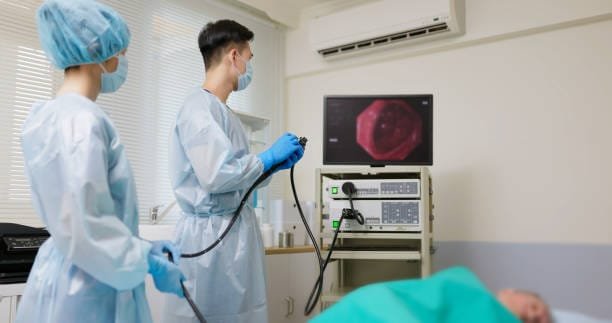Table of Contents
Introduction
Aspirin and Colon Cancer Prevention. Colon cancer is ranked amongst the top causes of death by cancer across the globe, with prevention thus assuming the highest priority for researchers and healthcare professionals. Curiously, there are several studies that suggest the daily use of aspirin lowers the risk of colon cancers significantly. How effective is aspirin in colon cancer prevention, and should every individual take it daily? This article explores the connection between aspirin and the prevention of colon cancer by tackling the main questions about this topic.
What is colon cancer?
Colorectal cancer, or colon cancer, involves the colon or rectum and often originates from precancerous polyps. Genetic predispositions may raise an individual’s risk, but lifestyle habits, such as diet, exercise, and medication use, have a great influence on causing it. Determination of preventive measures, including aspirin, helps prevent this disease.
1. What Role Does Aspirin Play in Colon Cancer Prevention?

Well, aspirin, widely prescribed and available over the counter, is most known for pain relief and inflammation. But research has shown its potential to decrease the likelihood of colorectal cancer. Its anti-inflammatory effects may also explain how aspirin works by stopping the lining of the colon from growing abnormal cells, which often lead to cancer.
According to research, aspirin users experience a 20–40% decrease in the likelihood of suffering from colon cancer than non-users. The risk reduction cuts across especially those people who face a highly increased risk of having colon cancers, such as those individuals with a family history or other earlier instances of precancerous polyps.
2. How Does Aspirin Lower Colon Cancer Risk?
Aspirin’s anticancer activity is thought to derive from the inhibition of cyclooxygenase (COX) enzymes, notably COX-2. These are involved in processes that can produce inflammation leading to the growth of cancerous cells. The inhibition of COX-2 may thus lower inflammation in the colon, which has been established as a risk factor for cancer; an environment with reduced inflammation is less favorable to new cancers.
Prevent tumor formation: The existing literature suggests that aspirin may interfere with the progression of polyps into malignant tumors.
Cause Cell Death in Cancerous Cells: Aspirin may encourage cell death, which in turn contributes to a reduced risk of cancer.
3. What Do Studies Say About Aspirin and Colon Cancer Prevention?
A number of studies have been conducted to provide evidence for aspirin’s role in colon cancer prevention:
a. The Lancet published a study that revealed the risk of colorectal cancer is significantly lowered for people who use aspirin daily for at least five years.
b. According to the Journal of the National Cancer Institute research, people who used aspirin were less likely to develop advanced colon cancer.
c. The U.S. Preventive Services Task Force recommends low-dose aspirin for those aged 50-59 years who are at increased risk for cardiovascular disease and colon cancer, thus reducing the dual burden of such conditions.
However, these encouraging findings notwithstanding, long-term administration of aspirin shows maximum protection, especially after five to ten years.
4. Who Should Take Aspirin for Colon Cancer Prevention?
Not everyone should begin taking aspirin to prevent colon cancer without consulting the healthcare provider. Here are some groups that may benefit:
High-Risk Persons: Patients with a family history of colon cancer or those who had polyps removed may benefit most from aspirin.
Middle-aged Adults: Aspirin is most effective in reducing colon cancer risk in 50- to 69-year-old individuals.
Patients with Cardiovascular Risk: Patients at risk for both conditions might especially benefit because aspirin is also recommended for the prevention of heart attacks.
5. What’s the Risk of a Daily Dose of Aspirin?

While there are several benefits to taking an aspirin daily, this isn’t without some risk. Common side effects include irritation and ulcers to the stomach and an increased risk of bleeding. Rarely, long-term use can lead to life-threatening side effects from hemorrhagic stroke.
This is why medical advice is crucial. This will help healthcare providers determine the level of risk and benefits with considerations on personal medical history and the proper dose of the medication.
6. What Is the Alternating Way to Prevent Colon Cancer?
Aspirin is promising, but this is not the only method of prevention. Others are:
Regular Screening: There are screening tests such as colonoscopy that can detect polyps and cancer in early stages when they are curable.
Healthy Lifestyle Habits: A diet that contains plenty of fruits, vegetables, and whole grains, combined with regular physical activity, can reduce the risk of colon cancer.
Reduced Alcohol and Quit Smoking: Both are risk factors for colorectal cancer.
Other Anti-inflammatory Medications: Sometimes, doctors prescribe additional anti-inflammatory medications or supplements, such as calcium or vitamin D.
7. Do I Need to Start Taking Aspirin?
Determination to undergo daily aspirin intake should never be taken without careful considerations. The rationale for its role as a chemo preventive agent against colon cancer is compelling; however, everyone needs to weigh these risks and benefits with their doctor.
Conclusion

This is a promising area of research in the connection between aspirin and colon cancer prevention; hope has emerged for reducing the incidence of this deadly disease. With its capability to decrease inflammation and interfere with cancerous cell growth, aspirin may play a vital role, particularly for high-risk individuals. However, because of potential side effects, a visit to a healthcare provider is essential before integrating aspirin into one’s routine.
Combining aspirin intake with other preventive measures, such as healthy living and preventive screenings, can significantly help people protect their colon health.



